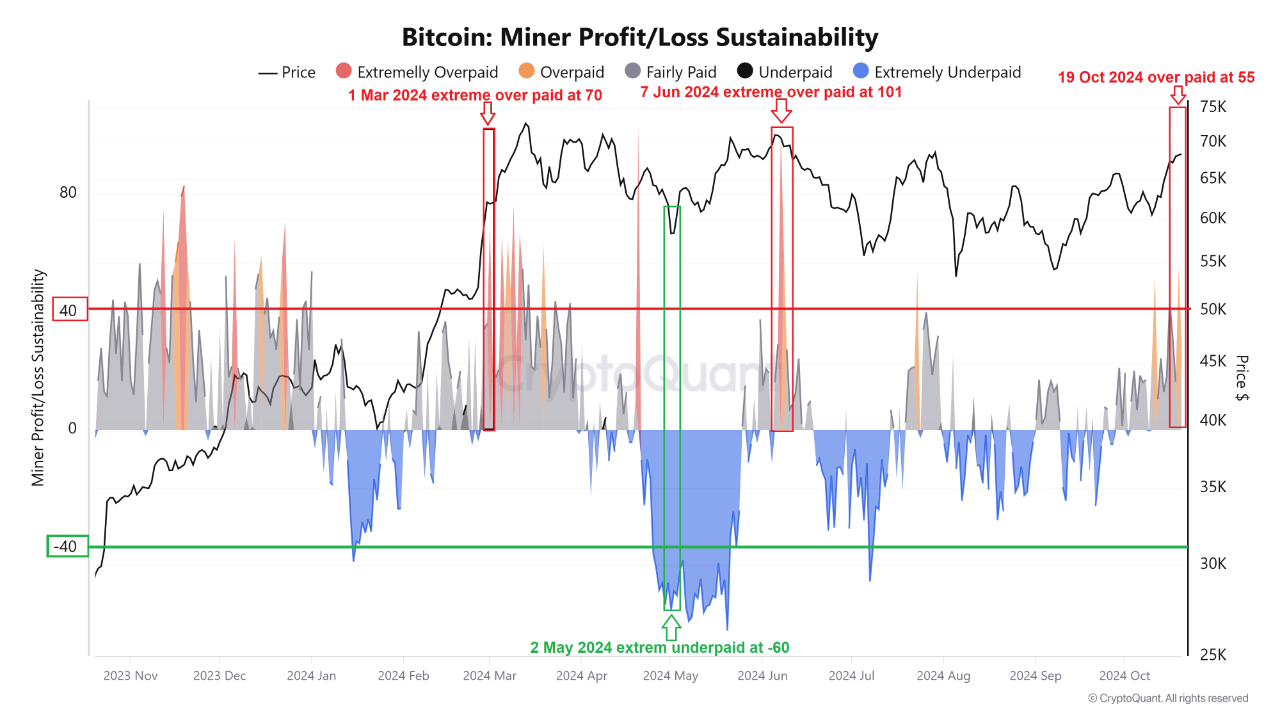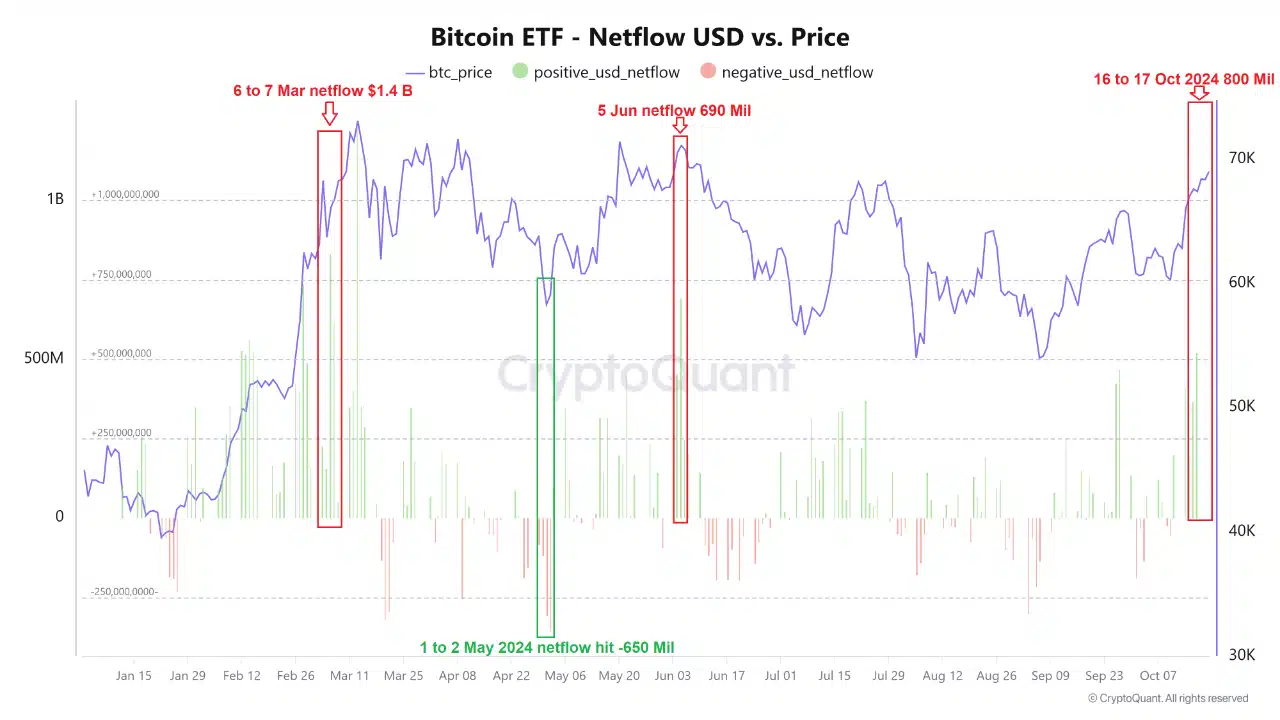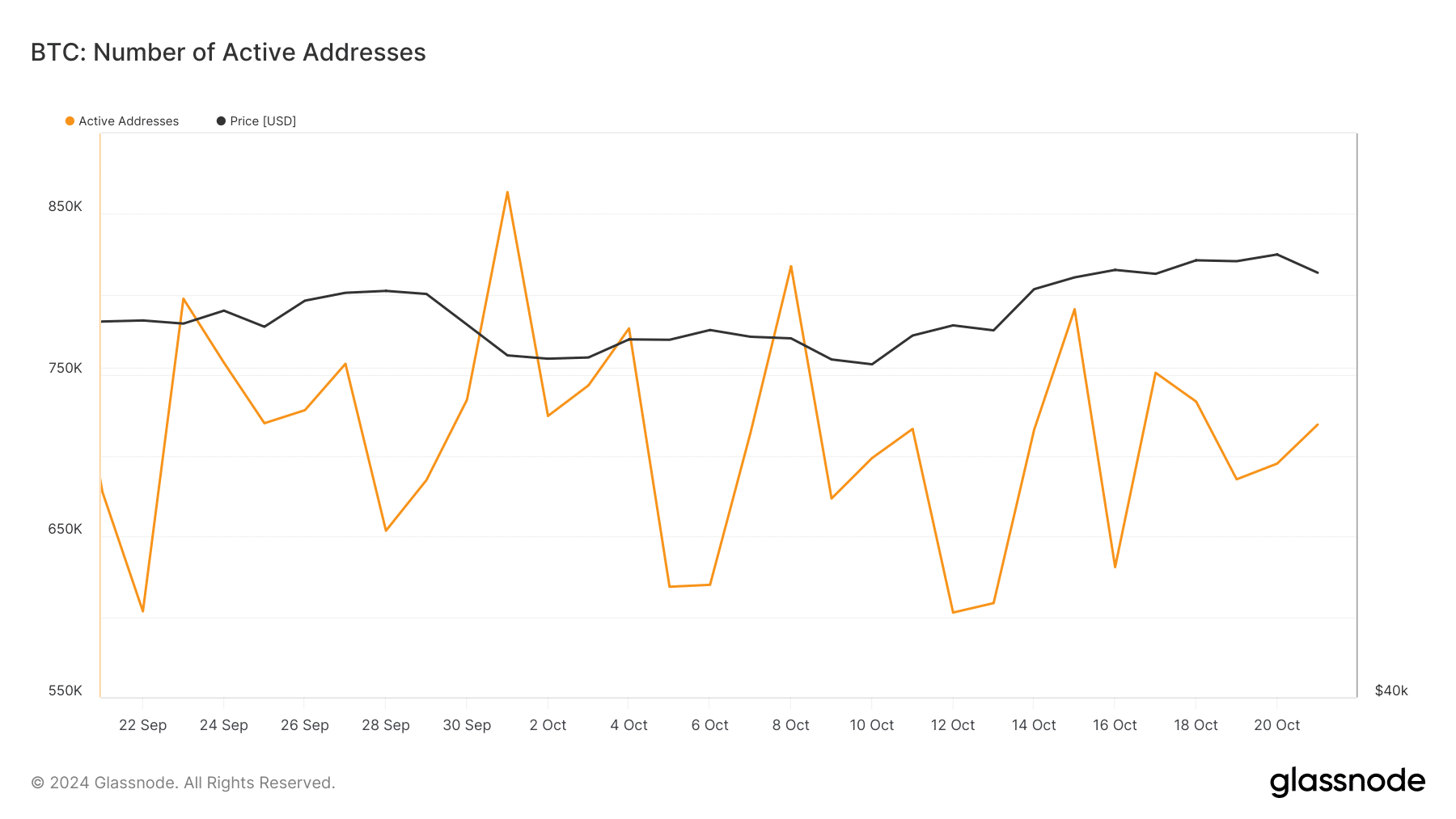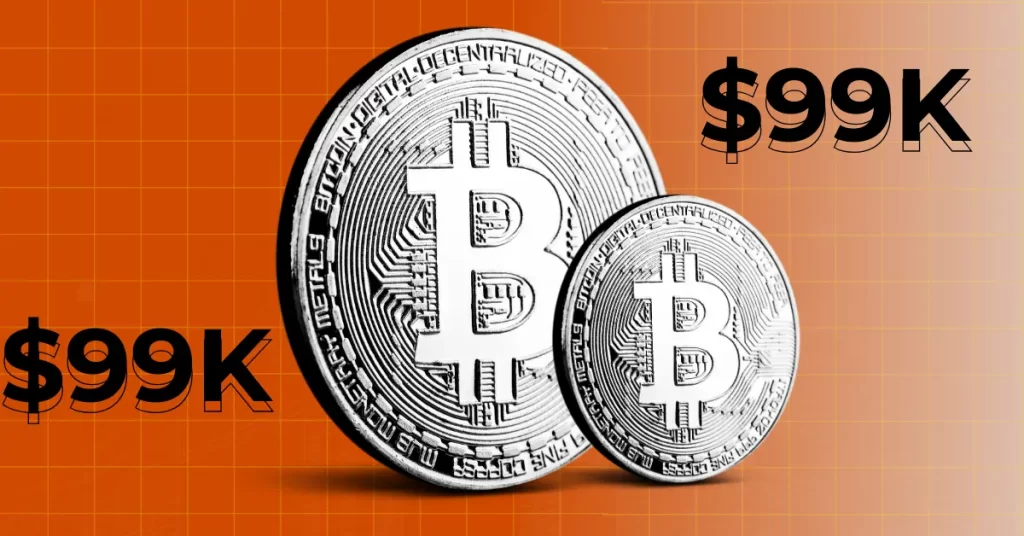- Bitcoin’s ETF inflows and increased miner profitability suggest that BTC’s upward price momentum may continue.
- Active addresses and rising open interest volume signal strong market activity, despite mixed derivatives data.
Bitcoin [BTC] has seen a steady increase in price in recent weeks, sparking interest in the underlying factors driving this momentum.
According to a CryptoQuant analyst, Amr Taha, there is a noteworthy relationship between Bitcoin ETF net flows and Miner Profit/Loss Sustainability, which could be influencing Bitcoin’s price movements.
The analysis, shared on the CryptoQuant QuickTake platform, sheds light on how these two indicators interact and their potential impact on the market.
Bitcoin ETFs, miners team up!
Taha’s analysis focuses on the net flow of capital into Bitcoin ETFs, highlighting that large positive net flows often occur near market peaks, while negative net flows tend to coincide with market bottoms.
This trend suggests that when capital flows into Bitcoin ETFs, it can lead to upward price pressure, while capital outflows may result in downward pressure.
Additionally, the Miner Profit/Loss Sustainability chart helps track whether Bitcoin miners are operating profitably based on the difference between Bitcoin prices and miners’ operating costs.
The chart identifies “overpaid” zones, when miners are generating significant profits, and “underpaid” zones, when miners are facing losses.
Taha’s analysis offers key insights into how BTC prices are linked to miner profitability. As Bitcoin prices rise, miners tend to be in more profitable positions, as seen in March, June, and October 2024.
During these periods, miners generated significant profits, with miner sustainability metrics rising above 40.
However, when capital exits Bitcoin ETFs, miners’ revenue can decrease due to the selling pressure, pushing them into a less profitable or loss-making position.
A notable example of this occurred in May 2024, when Bitcoin prices fell sharply, leading to a miner sustainability level of -60, indicating that miners were extremely underpaid.
It is worth noting that so far, BTC ETFs has been experiencing positive momentum, data from Sosovalue shows that BTC ETFs have registered continuous inflows above $200 million in the past seven days.
This marked a 7-day consecutive streak of inflows, which reflected increased demand for BTC-related financial products and could support further price increases.
Meanwhile, CryptoQuant data showed that miner inflows have also increased, with a peak of 11,810 BTC on the 14th of October and another significant inflow of 9,302 BTC on the 21st of October.
The correlation between ETF inflows and miner reserves suggests that both institutional interest and miner activity are contributing to Bitcoin’s current price momentum.
Active Address growth and market data
Beyond the ETF and miner-related metrics, data from Glassnode indicated that Bitcoin’s network activity has picked up in recent days.
Active Bitcoin addresses increased from 630,000 on the 16th of October to over 719,000 by the 22nd of October.
This growth in active addresses signals greater user engagement and transactional activity on the BTC network, potentially contributing to the asset’s bullish momentum.
In contrast, data from Coinglass highlighted some mixed signals in Bitcoin’s derivatives market.
Bitcoin’s Open Interest, which measures the total value of outstanding derivative contracts, has decreased by 3.17% to a press time valuation of $39.36 billion.
Read Bitcoin’s [BTC] Price Prediction 2024–2025
However, Bitcoin’s Open Interest volume has surged by 55.69%, reaching $68.28 billion.
The rise in Open Interest volume suggests that while fewer positions are being held overall, the size of the positions is increasing, indicating a possible buildup of market activity in anticipation of significant price movements.














